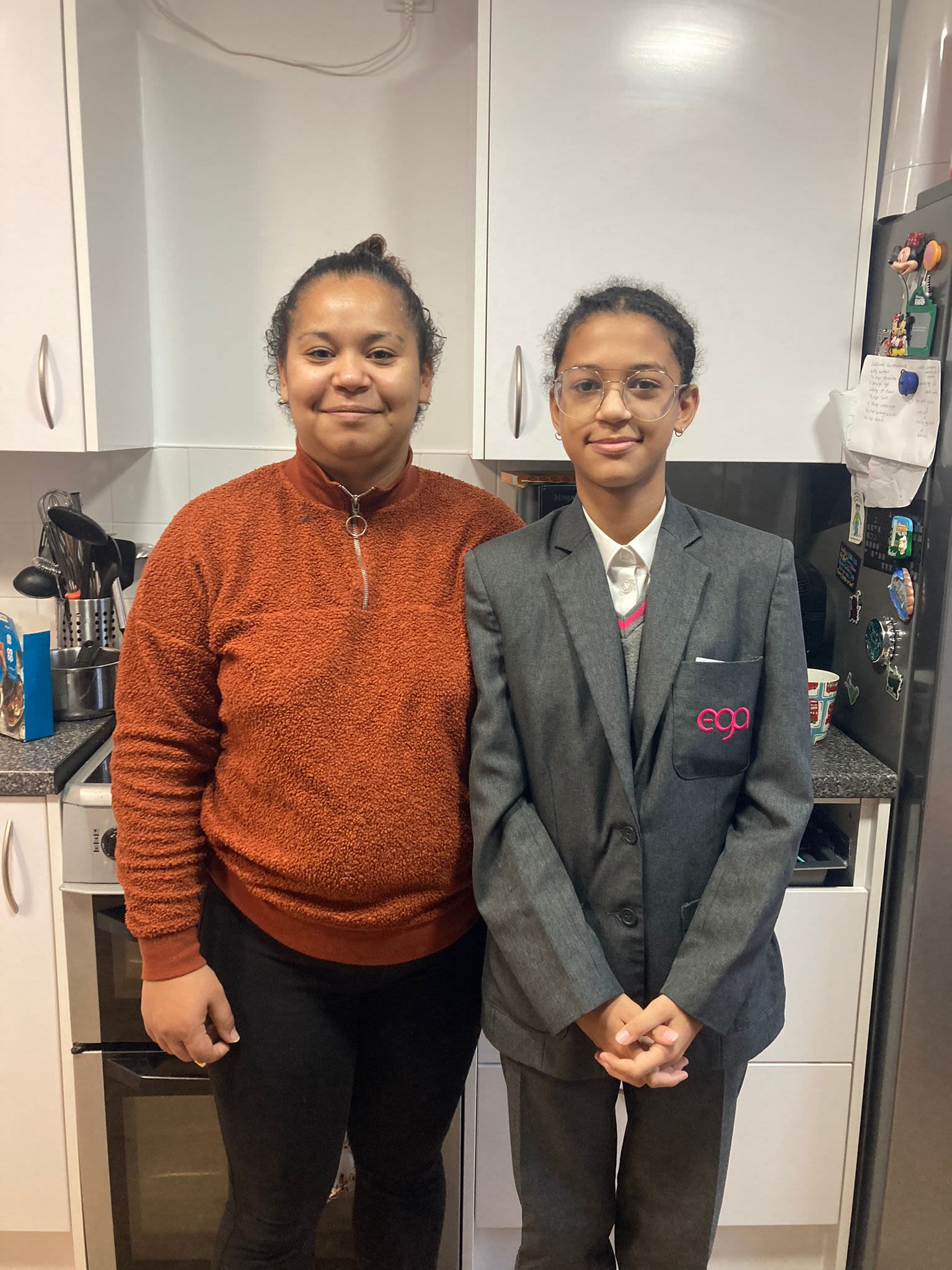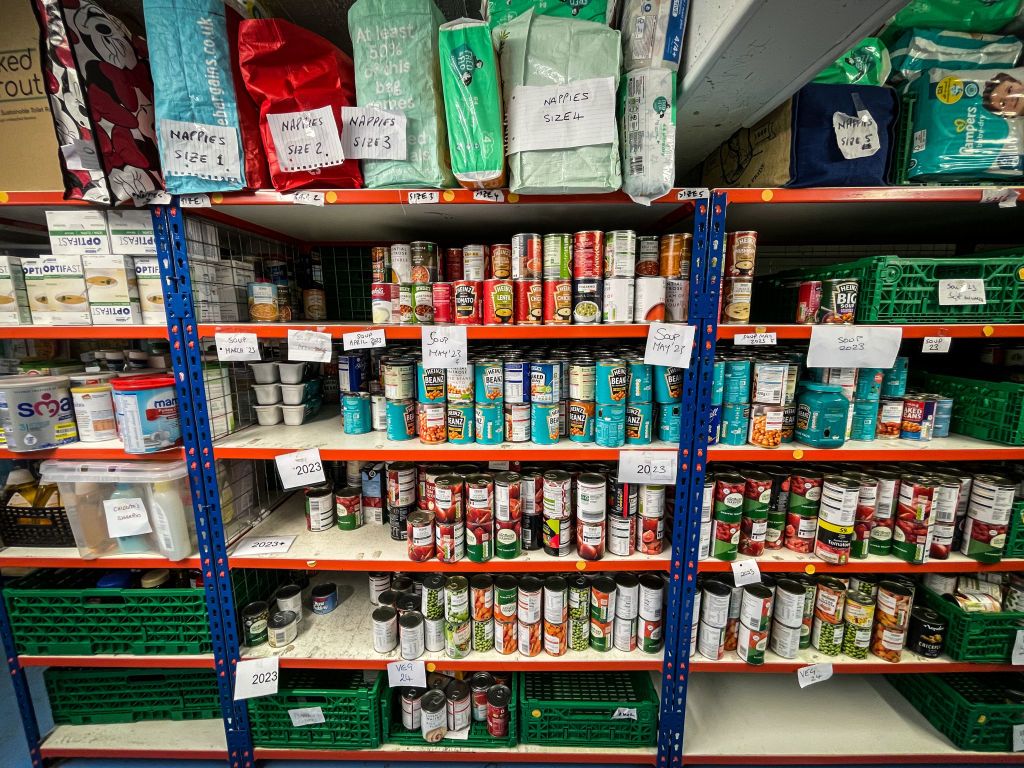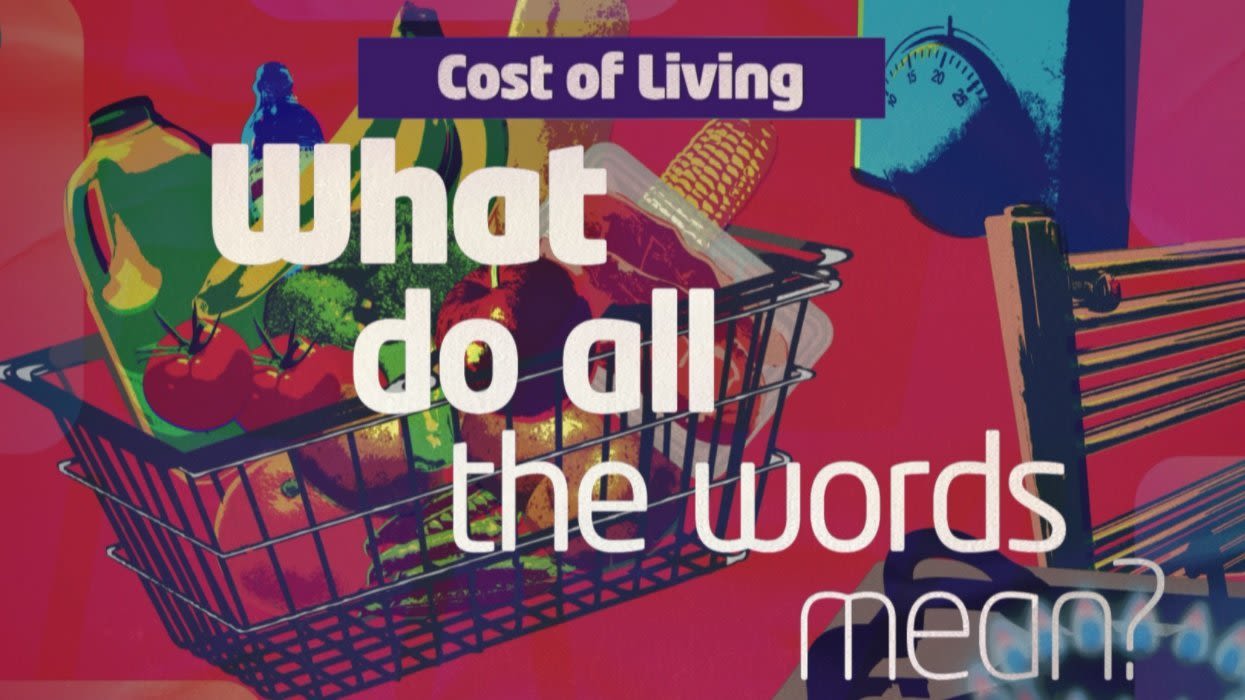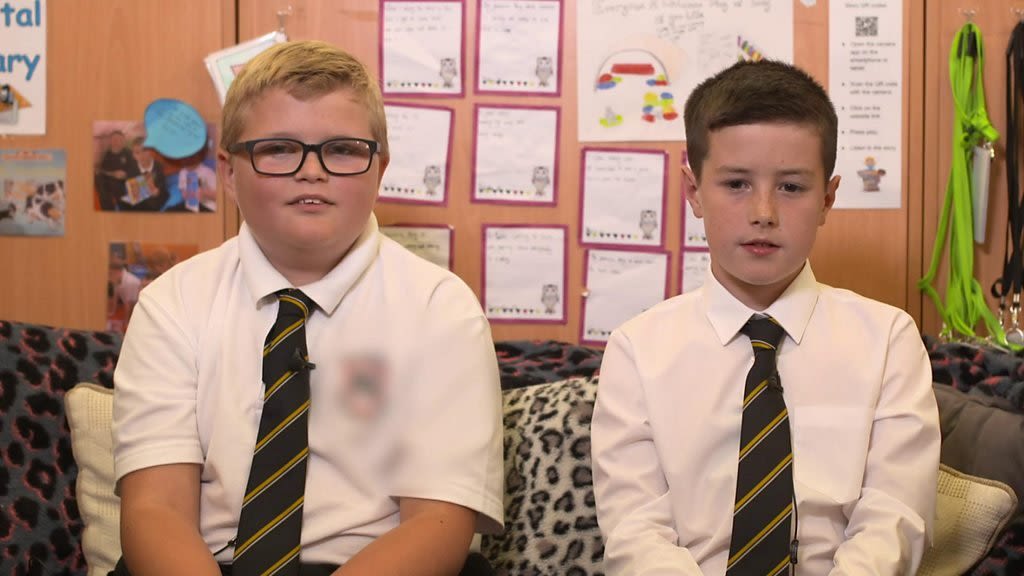Cost of living:
What's life like for UK children?
A Newsround survey

Every day in the UK, familes are facing tough choices about how they spend their money.
The cost of things we need for our everyday lives - like food, clothes and energy - has been going up and up ... and up.
It’s affecting families, parents and schools - which means it’s affecting children.
Young people have told us they are worried about the impact of it on their lives at home and at school.
They say they are missing out on things they normally enjoy.
You've probably heard people talking about it -
the cost of living crisis.

The cost of living crisis is due to a lot of different factors and, although governments say they are trying to take action to make things easier, many families are making difficult decisions about their budgets.
At Newsround, we wanted to know if you are worried about what's happening, and how it's affecting you and your family.
We heard some of your stories directly, and with the help of the survey company Survation, we asked 2,081 seven to 15-year-olds from all over the UK about their experiences.
Here's what we learned.
Click image to find out more
Click image to find out more

Family life


More than four in five (86%) of the young people who were asked said they had heard of the cost of living crisis and, of those who had, nearly three quarters (72%) told us they were worried about it.
That's as many as those who said they were worried about the war in Ukraine, Covid or climate change.
When you are worried about something it's important to talk about it with an adult you trust, and four in five (80%) of the children we heard from said that the cost of living crisis was something that they talked about with their family.

And of course, the tough times the UK is facing will also mean tough times for many families.
The obvious impact of things being more expensive is that families can't afford them as easily as they have in the past.
Not having enough money can lead to families cutting down on things they need - like food, clothes or energy to heat their homes or cook their food.
Mackenzie's Story
Mackenzie is 12 years old and lives in Blackpool. He comes from a big family and has seven brothers and sisters.
Mackenzie spends a lot of time at a local hub - a place that supports him in keeping warm. He gets his clothes washed there, and his hair cut too. His mum Khristy also works there.
Sometimes money can be a struggle for Mackenzie and his family and while there are jobs to do in every family, Mackenzie does a lot to help his mum.
He takes charge of making sure that the card the family uses to get gas is topped up and, having taken charge of the food shopping while his mum is at work, he has decided to use his pocket money to pay for his school dinners.
"It's hard because, like, you could have a whole cupboard full of food and then the next couple of weeks, you could have nothing...
"And you have to wait a couple of days until your mother or father can go to the shops to buy more food. "


Concern about not having enough money is another issue we can see reflected in our survey.
Nearly three-quarters (73%) of the children we heard from said that they were worried about their family having less money for things they need - with one in every five (22%) saying they are very worried.
Worries about not having enough money to spend on things you need can make families more careful about what they do spend their money on.
And that's something that can affect children directly in their everyday lives - at home and at school.

Schools are also facing increased costs and leaders have warned that they might have to cut music lessons, cancel trips or even cut staff as their bills are so high.
Half of the children surveyed (50%) said that their school has been speaking to them about the cost of living crisis, and a similar amount said they are worried that their school could have less money for the things it needs.
How pupils' lives are being affected - click image to follow.
How pupils' lives are being affected - click image to follow.


Back at home, nearly one in three (29%) of those children who took part said they were getting less pocket money than three months ago.
And for one in four (25%) children, it was also affecting the after-school clubs and activities they take part in.
Two in five (42%) said that, over the last three months, they weren't getting as many treats - like sweets or games.

And two thirds (66%) said that they were helping their family with their energy bills by making sure they leave their gadgets and electrical devices on less during the day.
But a much bigger concern is that one in 10 children (12%) reported that they weren't eating three meals each day, as often as they were three months ago.

If you are worried about your family and money, click here for advice.
If you are worried about your family and money, click here for advice.
'Heating or eating'


When people talk about the cost of living crisis, a phrase you might hear on the news is people being faced with the choice to "heat or eat".
This means that, for some families, bills are so high that they may have to chose between keeping their home warm by putting the heating on, or making sure everyone is getting enough food.
Almost three in 10 (29%) of those who responded to our survey said that they sometimes skip meals - but this wasn't always due to the cost of living crisis.
Most of those who skipped meals said it was because they just weren't hungry.
However, one in seven (14%) of those who skipped meals said it was because there wasn't enough food at home, and just under one in 10 (9%) said it was because they couldn't afford to buy food at school.

Amiyah's Story
Amiyah is 11 and she lives in London with her mum.
Amiyah is a carer for her brother Tyler who is autistic. Lots of the activities they do together involve things like take-aways and gaming, which can be expensive - especially right now.
Amiyah knows that when times are tough she needs to be careful with money. So she cooks for her brother, makes sure to turn the console and lights off and walks to school instead of getting the bus.
To save money, she tries to stay warm without putting the heating on, but says she feels the cold! Amiyah sometimes wears gloves and her coat in school to keep warm.
"The hardest thing about being a young carer is that I'm not able to do the things I used to.
"I'm worried about the future and that there will be stuff that we can't afford."


When families are struggling to afford to buy food, sometimes they turn to foodbanks.
Foodbanks are a bit like supermarkets, but everything is free, or much cheaper than usual.
According to foodbank charities, the cost of living crisis means that more and more people are using them for help.
This could be because people have lost their jobs or don't have enough money coming in to the house.

One of the biggest foodbank charities in the UK is the Trussell Trust.
In November 2022, they said that over the previous six month period, nearly 1.3 million food parcels were handed out - almost half a million of which went to children.
They say they have seen more than 320,000 new users in that time too - many of them from families that have jobs but aren't earning enough money to get by.


In our survey, children around the UK were asked if they knew about foodbanks and if their family had ever used one.
About one in seven (14%) of those who responded said that their family has used a foodbank.
As most school classes contain on average of 30 children, you could look at that proportion as around four children in each class.
Of those who said their family do use them, two in five (43%) said they use them sometimes, but one in six (16%) of this group said that they use them often.
Two in five (42%) said they have used them more often in the last few months.
Joseph's Story
Joseph, 11, and his sister Chloe, 16, are already experts on how to manage their money and save for the future.
His whole family help out at a charity that supports people struggling to make ends meet - after having serious problems of their own in the past.
His mum and dad lost their jobs so the family are living on less money, while everything has got more expensive. He’s stopped his extra school activities, and is wearing more layers of clothes.
Joseph is also taking packed lunches to school because it's cheaper than having school dinners.
As well as helping his own family, he recognises that other kids are struggling too, so Joseph is keen to do what he can to help others.
Around Christmas time, he joins in with the work of the charity - raising money, delivering presents to people in need, and even sometimes serving Christmas meals.
"Before, if we were cold, we’d put on the heating, now we just wear jumpers or blankets and watch TV together so there's only one screen on at the same time.
"We went through times when we didn't have any money - or we’d have like £2 for a week. So it was quite hard knowing that what we had in, was everything that we had."


Help and support
If you have been affected by any of the issues raised in this article, there is lots of support out there for you to get help.
You can speak to an adult you trust, like a parent, guardian or a teacher.
You can also visit the Newsround website by clicking here where you can find loads of tips and advice if you are feeling worried.
The NSPCC website has lots of advice for children and young people.
And you can also contact Childline, which is run by the NSPCC, on 0800 1111 to speak for free to an advisor at any time.
BBC Own It also has loads of tips for managing your life online and in person - and offers ideas for how to reach out to others and support your friends.





